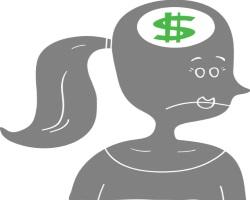Researchers studied the brainwaves of more than 100 children between the ages of 7 and 12 who came from a variety of economic backgrounds. They found that the brains of kids from poorer families operated differently than those of children from more affluent settings. Specifically, connections originating from the hippocampus (the area of the brain in charge of learning, memory and stress regulation) and the amygdala (another region of the brain associated with stress management) were weaker in the brains of poorer children than those in richer kids.
That’s key, researchers say, because those weaker connections have been linked to childhood depression. In fact, preschoolers who came from poverty were more likely to be clinically depressed by the time they were 9 or 10 than their more affluent peers.
“Poverty is one of the most powerful predictors of poor developmental outcomes for children,” said co-investigator Joan L. Luby, M.D., the Samuel and Mae S. Ludwig Professor of child psychiatry and director of Washington University’s Early Emotional Development Program. (PsychCentral)

